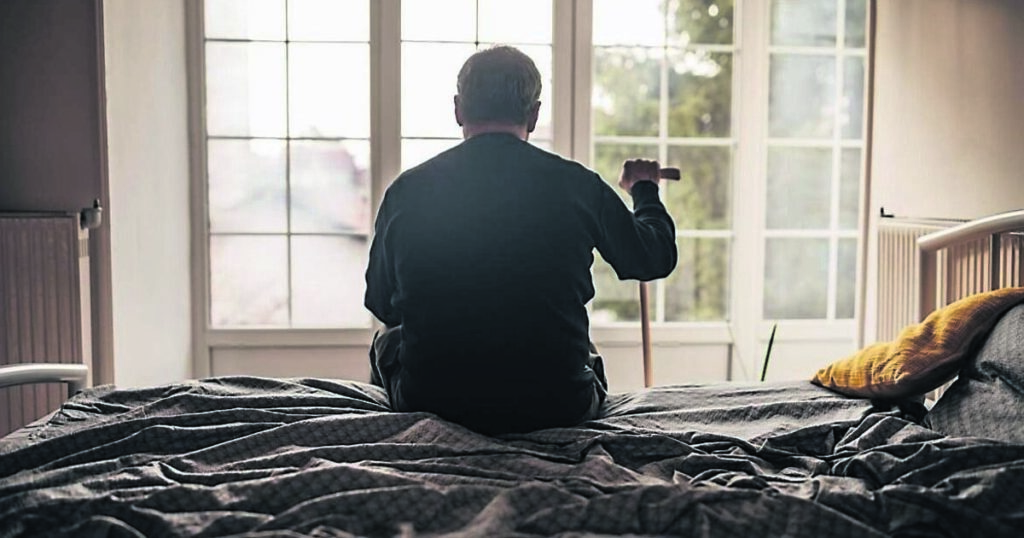THE U.S activist Chelsea Manning has spoken of, throughout her time in solitary confinement, standing earlier than a mirror speaking to and making faces at herself.
WikiLeaks founder Julian Assange, throughout extradition proceedings after extended solitary confinement, struggled to provide his age or identify and stated it was troublesome to suppose correctly. Shortly after his removing from confinement, his well being and wellbeing considerably improved.
Leopold Trepper, chief of a World Battle II-era Soviet spy ring, described the psychological anguish of not being allowed any communication with different prisoners throughout a interval in a post-war jail camp.
These are just a few examples from numerous. Social isolation isn’t regular for people, we depend on others, our very sense of selves depends on it.
The connection between social engagement and psychological wellbeing and bodily well being is effectively established. However a current meta-analysis, by Fan Wang and colleagues of Harbin Medical College in China, has developed this a lot additional and drawn on the proof on its hyperlink to the best well being final result of all – mortality.
The meta-analysis included knowledge from 90 papers, together with 2,200,000 individuals. It checked out social isolation and loneliness in relation to loss of life charges within the common inhabitants, individuals with heart problems (CVD), and people with most cancers. Its findings are putting.
Throughout the inhabitants, each social isolation and loneliness had been related to better threat of loss of life – from all causes (32% and 14% will increase respectively) and particularly from most cancers (24% and 9%), whereas social isolation was related to elevated charges in CVD (34%).
Mike Murphy, from the Division of Utilized Psychology at UCC
Wanting individually at completely different teams, social isolation was linked to elevated charges from all causes for CVD sufferers (28%), and for individuals with breast most cancers (51%).
These figures are tightly managed – the researchers adjusted to permit for alcohol use ranges, despair, and diabetes (and the primary two of those would possibly usually circulate from social isolation – which might possible make the figures larger). Smoking might be larger in lonely individuals too.
I discover it troublesome to learn these figures with out reflecting on our current lockdown experiences. We had been all required to remain aside so far as potential, particularly so for individuals with underlying medical circumstances or depressed immunity (together with many individuals with CVD and most cancers). The social isolation all of us skilled was exacerbated in these whom this research discovered to be at particular threat.
Simply why social isolation has this impact isn’t totally clear, and there are possible many mechanisms at play. There may be appreciable proof that social engagement/participation makes train extra possible, and socially remoted individuals additionally seem to eat much less effectively.
Social assist can also be an necessary useful resource for us in dealing with stress – others’ data may be helpful in coping with issues, and we rely partially on different individuals for emotional assist, understanding or easy distraction. The absence of different individuals makes life’s stresses tougher to bear; and power stress is dangerous information for our bodily well being.
The majority of the research listed here are from western, industrially developed societies. This is a matter, because it raises questions of whether or not tradition or social norms have an effect on the hyperlinks between isolation and well being – what applies in California needn’t apply in Cork, nonetheless much less so in Cambodia! I can’t let you know if the connection applies globally, however a current research by Giovanni Rossi, of UCLA in California, and colleagues from universities in lots of international locations, reported on the marked similarities in serving to behaviour throughout very different cultures – which in flip means that serving to each other (and typically selecting to not assist) are developed behaviours, a part of what it means to be human.
Analysing movies of day-to-day interactions of individuals from numerous societies, all taken in regular home settings, they discovered largely common patterns. When doing joint chores like getting ready a meal, we instantly or not directly ask for assist roughly each two minutes. We’re six instances extra possible to assist than not when there’s a request.
After we assist, it’s usually with out remark; once we resolve to not assist, we’re much more more likely to provide a cause than to simply say ‘no’ or to disregard the request.
That is small stuff, however most of life and social interplay is made-up of simply such small stuff. This exhibits us that wherever we’re, no matter our society, tradition, or background, we’re successfully the identical in some ways. We assist. We ask for assist. We clarify refusals. We work collectively and attempt to get alongside.
I discover this comforting; so many forces attempt to divide individuals based mostly on ethnicity, language, faith, tradition – however in the end, far, much more unites us than divides us.
In the case of social engagement, it’s constructed into us – to some extent the place its absence might enhance threat of loss of life itself.
What are the teachings right here?
To me, these research collectively say we thrive with each other, and other people all over the place are largely the identical. So for those who need assistance, ask for it. If you need social contact, for those who really feel lonely, this isn’t weak point – it’s your humanity. Let’s attempt to not stand by and let loneliness fester.
And within the occasion of one other pandemic (at all times potential!), let’s be particularly aware of these most impacted by distancing – and that duty lies strongly with the powers-that-be in addition to with the remainder of us.

